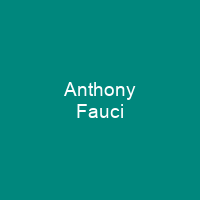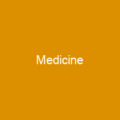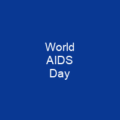Anthony Fauci: The Unsung Hero of Modern Medicine
‘Is there anyone who can match the impact and influence of Dr. Anthony Fauci?’ This rhetorical question echoes through the halls of American healthcare, as we delve into the life and legacy of one of the most recognizable faces in public health.
The Early Years: A Call to Serve
Anthony Stephen Fauci, born on November 10, 1940, had a calling from an early age. He decided halfway through high school that he wanted to become a physician. This decision was not just a whim; it was the beginning of a journey that would change the course of modern medicine.
After graduating in 1958, Fauci enrolled at the College of the Holy Cross, where he studied classical Greek and worked in construction gangs during summers. His academic prowess led him to Cornell University’s Medical College (now Weill Cornell Medicine), from which he graduated first in his class in 1966.
Fauci’s early education laid the foundation for a career that would see him at the forefront of some of the most significant medical challenges of our time. His journey began with a clinical associate position at the National Institutes of Health (NIH) and eventually led to his appointment as director of the National Institute of Allergy and Infectious Diseases in 1984.
The Pioneering Years: HIV/AIDS and Beyond
Fauci’s contributions to HIV/AIDS research are legendary. He was a leading researcher during the AIDS epidemic in the early 1980s, working tirelessly to find treatments and vaccines. His efforts were not without criticism; activists like Larry Kramer accused him of delaying experimental treatments. However, Fauci’s dedication to public health and his willingness to engage with the LGBTQ+ community marked a significant turning point.
His work on HIV/AIDS led to important scientific observations that contributed to understanding the regulation of the human immune response. He developed therapies for diseases such as polyarteritis nodosa, granulomatosis with polyangiitis, and lymphomatoid granulomatosis. Fauci’s discovery of how to re-dose cancer drugs in a way that turned a 98 percent mortality rate into a 93 percent remission rate is just one example of his groundbreaking work.
A Global Health Leader: The Pandemic Years
When the 2009 swine flu pandemic hit, Fauci was already a household name. His predictions and advice were crucial in shaping public health responses around the world. During the Covid-19 pandemic, he became a public face of American healthcare, advising on social distancing measures and vaccine rollouts.
Fauci’s role as chief medical advisor to every U.S. president since Ronald Reagan has been pivotal. His testimony before Congress in 2014 during the Ebola crisis highlighted his commitment to public health. Despite facing criticism from right-wing pundits and receiving death threats, Fauci remained steadfast in his mission.
Awards and Honors: A Legacy of Service
Fauci’s contributions have been recognized with numerous awards and honors. From the Arthur S. Flemming Award to the National Medal of Science, he has received accolades that span decades. His work on HIV/AIDS, his predictions during the pandemic, and his unwavering commitment to public health have made him a symbol of excellence in medicine.
Fauci’s memoir, ‘On Call: A Doctor’s Journey in Public Service,’ offers a personal insight into his life and career. It is a testament to his dedication and the impact he has had on countless lives.
Conclusion
Anthony Fauci’s journey from a young man with a dream of becoming a physician to one of the most influential figures in modern medicine is nothing short of remarkable. His legacy is not just about scientific breakthroughs but also about his unwavering commitment to public health and his ability to navigate complex challenges with clarity and compassion.

You want to know more about Anthony Fauci?
This page is based on the article Anthony Fauci published in Wikipedia (retrieved on January 24, 2025) and was automatically summarized using artificial intelligence.






